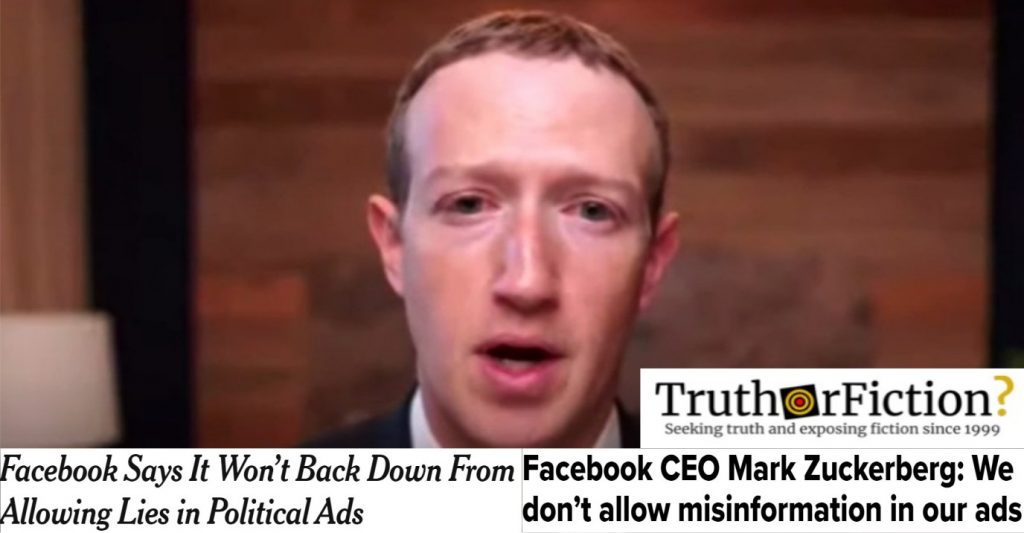Facebook chief executive officer Mark Zuckerberg misrepresented his company’s disinformation policy on advertising while testifying to federal lawmakers on March 25 2021.
Zuckerberg made the false claim — which flies in the face of his company’s “exemption” removing political ads from being subject to fact-checking measures — during an exchange with Democratic Rep. Jan Schakowsky of Illinois of the House Energy and Commerce Committee.
“Do you think that when you take money to run advertisements that promote disinformation, that you are exempt from liability? Yes or no,” she asked.
“Congresswoman, I don’t know the legal answer to that,” Zuckerberg responded. “We don’t allow misinformation in our ads, and any ads that’s been fact checked as false we do not allow to run as an ad.”
Instead of following up, however, Schakowsky pivoted to asking the same question of Zuckerberg’s counterparts at Twitter and Alphabet, Jack Dorsey and Sundar Pichai respectively.
Facebook has exempted political campaigns from being subject to fact-checking — and consequently labels from the platform alerting users that they containted disinformation —
“Our approach is grounded in Facebook’s fundamental belief in free expression, respect for the democratic process and the belief that, in mature democracies with a free press, political speech is already arguably the most scrutinized speech there is,” said Katie Harbath, the company’s global election policy chair, in a January 2020 letter to President Joe Biden’s campaign.
At the time Harbath made her statement, Biden was running to unseat then-President Donald Trump; later that year, Trump’s re-election campaign began running ads targeting Biden containing disinformation, which spread through the platform unfettered. As the Washington Post reported in August 2020:
Enabled by Facebook’s rules, Trump’s reelection campaign has shown versions of the false claim on Facebook at least 22.5 million times, in more than 1,400 ads costing between $350,000 and $553,000, a Washington Post analysis found based on data from Facebook’s Ad Library. The ads, bought by the campaign directly or in a partnership with the Republican National Committee, were targeted at Facebook users mainly in swing states such as Ohio, Georgia, North Carolina, Florida and Pennsylvania.
A separate review conducted by the newspaper and liberal activist group Avaaz found a similar pattern of disinformation in ads placed leading up to the January 2021 Senate runoff elections in Georgia.
We contacted Facebook asking why Zuckerberg did not mention the fact-checking exemption for political advertisements. The company did not respond. We also contacted Schakowsky’s office and asked if she was aware of that exemption. A spokesperson told us, “She is aware and will be following up with Mr Zuckerberg.”
- Facebook's Fact-Checkers Have Ruled Claims in Trump Ads Are False — But No One is Telling Facebook's Users
- The Technology 202: Republican Facebook Ads Targeting Georgia Runoff Contain Disinformation, Researchers Find
- Facebook Says It Won't Back Down From Allowing Lies in Political Ads
- Facebook CEO Mark Zuckerberg: We Don't Allow Misinformation In Our Ads

